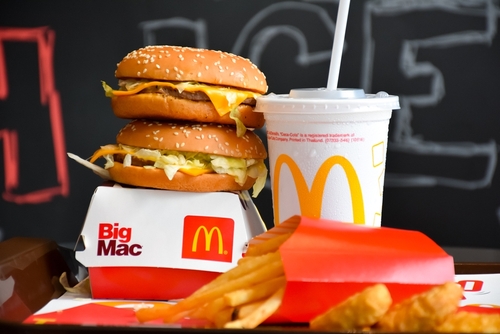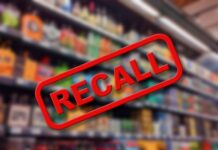
In a startling revelation that has raised concerns across the nation, a recent study has found that an overwhelming majority of food products sold in the United States contain potentially harmful ‘forever chemicals’. These substances, known for their persistence in the environment and the human body, have been linked to a host of health issues, including cancer, autism, and infertility.
The comprehensive analysis conducted by a consumer watchdog tested 85 everyday items, ranging from beverages and canned goods to infant foods and fast food. Alarmingly, all but one of these products tested positive for per- and polyfluoroalkyl substances (PFAS), which are synthetic chemicals used in the production of plastics that are resistant to degradation.
"Our study provides evidence, for the first time, that BPS [a hormone-disrupting chemical] & alternative chemicals found in food labels migrate through packaging materials into the food people eat"
Oh, fun pic.twitter.com/5wqF3jhT24
— Natural Immunity FTW (@NaturallyFTW) March 22, 2023
Among the tested products, prepared meals such as organic cheesy ravioli in a can were found to have the highest levels of phthalates, a group of chemicals within the PFAS family. This particular product contained 53,580 nanograms of phthalates per serving, a concerning figure given the potential health risks associated with these chemicals.
Seafood was not exempt from contamination either. Canned skinless, boneless pink salmon in water, a product many Americans consume for its health benefits, was found to have the highest levels of phthalates in its category—over three times more than the runner-up product.
Antibiotic Resistance
Chemical Contamination
Persistent Organic Pollutants
Heavy Metal Exposure
Food Borne Illnesses
Synthetic Colourants
Environmental Hormone Disrupters
Allergenic Reactions Increased
Omega Oil Imbalance
Lack of Transparency in Labelling pic.twitter.com/Gh1f27cD4V— Free Salmon (@salmon_free) November 29, 2023
The study’s findings underscore the pervasive nature of these chemicals in our food supply. While the levels of bisphenols, another type of PFAS, were lower than in previous years, indicating some progress, the presence of phthalates remains widespread. This is particularly troubling given their association with serious health conditions such as asthma, ADHD, breast cancer, obesity, type II diabetes, and various birth-related issues.
Fast food items were also put under scrutiny, with popular menu choices from well-known chains showing significant levels of phthalates. For instance, crispy chicken nuggets served in a cardboard container topped the list in this category, with nearly 34,000 nanograms per serving.
The implications of these findings are far-reaching. Not only do they call into question the safety of our daily food consumption, but they also highlight the need for stricter regulations and oversight in the manufacturing and packaging processes of food products. The fact that these chemicals can linger in the body and cause long-term damage should be a wake-up call for both consumers and policymakers.
As we move forward, it is imperative that we demand transparency and accountability from food manufacturers. Consumers deserve to know what they are putting into their bodies, and it is the responsibility of those in the industry to ensure that food products are free from harmful contaminants. The health of our nation depends on it.












